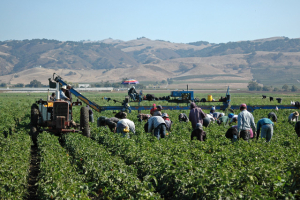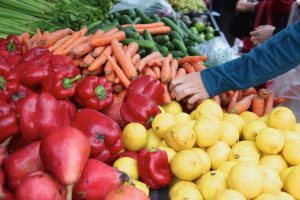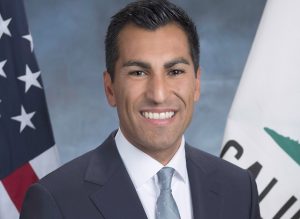On the Front Burner: CA Food & Farming Legislation
January 22, 2014 Michael R. DimockOn January 8, 2014, the growing food movement achieved an important milestone. The California Food Policy Council (CAFPC) released its first report to evaluate California’s legislative record related to food and farms. It is the first state-policy-focused analysis of legislative votesin the nation. This action in California is sure to be followed by similar action throughout the nation. The timing is excellent because I believe 2014 will see even more progress in the intensifying struggle over the future of our nation’s food and farms.
This struggle is between an industrial system that places huge farms, animal factories and profit above all else and a sustainable system that places family farms, health and resilience in a balance with profit. The question before us is how to create policies that accelerate the move to food and farms that deliver more health and resilience. The CAFPC believes that the answer will come from the grass roots up.
The CAFPC is a confluence of 19 regionsthat are home to nearly 75 percent of the state’s registered voters. It is calling on California’s elected representatives to intensify their focus on food policy in the nation’s most productive farming state. The state legislature’s attention is important for several reasons.
The quagmire in Congress over the federal Farm Bill reminds us that policy reform is unlikely to come from Washington, DC. Federal food and agriculture policy has fallen victim to a monumental power struggle. Rational decision making on a national level to address huge health, economic, and environmental problems linked to industrial food production seems impossible for now. If change comes, it will be marginal at best, leaving billions of public dollars to perpetuate a broken commodity crop system that enriches the few while degrading climate, soil, water, and human health on a gargantuan scale.
In stark contrast to this federal dysfunction, real change is emerging in local communities, and California provides some hopeful examples. The Los Angeles Food Policy Councilhas used careful balancing of priorities and a focus on practical solutions to community challenges to unify progressive food system activists from the many streams that make up the food movement: social justice, healthy food access, and urban and sustainable agriculture. This unity made it much easier to pass a local procurement policythat encourages public agencies to purchase food that is healthier and sustainably produced by companies that treat workers well.
Next, the LAFPC hopes to pass a policy that offers legal protections to street vendorswho provide fresh fruits and vegetables. Other cities and counties are also leading the way. San Diego County has invested in greater access to farmers’ markets and fresh producefor its low-income residents. Sonoma County has passed a quarter cent sales tax to ensure preservation of its agriculture assetsin recognition that food and farming are essential to urban resilience. San Francisco passed a local ordinancein 2011 to support urban agriculture, inspiring the city’s state Assemblyman, Phil Ting, to create a state law(AB 551) in 2013 that does the same using tax incentives.
These local policy developments are important, but they must migrate up to the state level. The verdict from the California Food Policy Council report is that our legislature can do much more.
Though Governor Brown signed a handful of important bills last fall such as the aforementioned Ting bill and AB 224that supports Community Supported Agriculture operations, many opportunities continue to be overlooked. California’s underinvestment in our food system continues, as not one bill provided farmers and ranchers with incentives for protecting soil, water or biodiversity. Vital University of California research programs, like the Biologically Integrated Farming Systemsprogram that led to huge breakthroughs for the winegrape and almond industries and could do the same for many others, have been cut for years. In the midst of a terrible drought and projections of climate chaos, AB 823, a policy that would promote farmland protection as a carbon sequestration strategy, was killed in the Assembly Agriculture Committee. Worst of all, the beverage industry and legislators have kept SB 622, which could help reverse the childhood obesity epidemic by funding healthy food access for low-income families, trapped in Appropriations because they are reluctant to raise taxes on sweetened beverages.
This year is the UN’s International Year of the Family Farmer. It is the hope of the California Food Policy Council that 2014 will also be the year that the State of California joins the United Nations in identifying family farms and food systems as a cornerstone for health and resilience in the 21st Century. It is our hope that several other states across the nation will join us. Together we can show Congress how a new set of policies can guide development of food and farming to be economically beneficial, ecologically regenerative and deliciously healthy.



